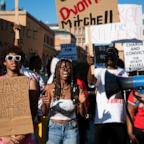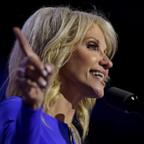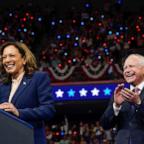Missouri will elect a new governor this year
Missouri will elect a new governor in 2024, with today's Republican primary likely to be decisive in this solidly red state. Thanks to strong name recognition (his father, former U.S. Attorney General John Ashcroft, is a former Missouri governor and senator), Secretary of State Jay Ashcroft started off the year with a healthy lead in the polls. However, Lt. Gov. Mike Kehoe outraised Ashcroft $4.2 million to $1.4 million and, in total ad spending, Kehoe and his allies have outpaced Ashcroft and friends $11.2 million to $6.5 million, per AdImpact. Tellingly, once Kehoe's side started deploying that cash, Ashcroft's lead evaporated: According to 538's polling average of the race, Ashcroft and Kehoe go into the primary running almost even at around 25 percent apiece.
A third candidate, state Sen. Bill Eigel, sits at 16 percent and can't be counted out either. He also raised more than Ashcroft at $1.7 million — with $4.4 million in total ad support — and he's the farthest right of the trio, with a reputation for holding legislation hostage until he gets what he wants. For his part, Ashcroft has campaigned as a staunch conservative as well, while Kehoe is seen as the most mild-mannered candidate in the race. However, perhaps the best chance to halt Kehoe's momentum evaporated last week when Trump endorsed Kehoe … and Ashcroft … and Eigel. It was Trump's first-ever three-way endorsement and ensured this primary will go into election day with no clear favorite.
—Nathaniel Rakich, 538







